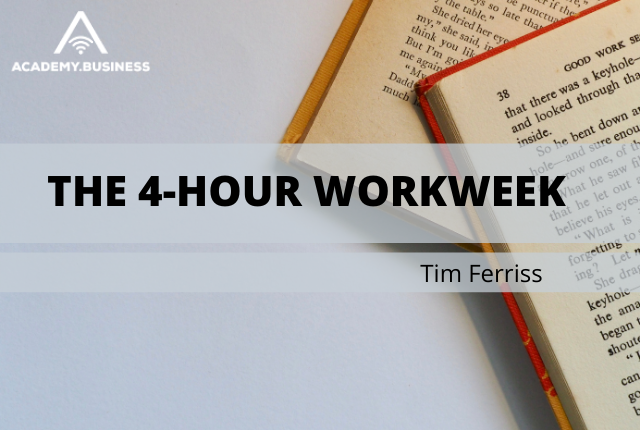No matter who you are, where you live, what you do, or what you want to be when you grow up, life has been – and will continue to be – a series of choices. Some of these choices can seem difficult, but have no real wrong answer, like, “do I want the pumpkin muffin or the blueberry muffin?” Others can seem to carry the weight of the world, such as “do I hire an additional staff member and sacrifice potential revenue, or try to do everything myself and ruin everything?” The guiding forces that help us make these decisions, day in and day out, are principles.
And according to author, businessman, and one of the richest men in the world, Ray Dalio our principles – and how they guide our decision making – is what makes us successful.
If the thought of another “how to be successful” by another “self made billionaire” makes you roll your eyes, hold on a second. First of all, Mr. Dalio isn’t trying to sell you a scheme. He doesn’t guarantee you’ll make a million dollars in a week.
That’s not the definition of “success” involved in this book. All he’s asking is that you look up from all the things in your life that overwhelm you, and think about how you think. That’s fair enough!
Who Is Ray Dalio?
Ray Dalio was born on Long Island, NY in 1949. His father was a jazz musician, and his mother was a stay at home mom. The childhood he outlines in his book is pretty typical: he was a poor student, uninspired by learning facts and figures.
He did really unremarkable kid things, like run a paper route, make cookies with him mother, and play outside after finishing his homework. But at age 12, that “typical kid” thing takes a wild departure, when he buys shares of Northeast Airlines and triples his investment following the Northeast merger.
The rest, as they say, is history. Buoyed by a Bachelor’s degree in finance from Long Island University and a Masters of Business Administration from Harvard Business School, he opened an investment firm known as Bridgewater Associates, which is today one of the world’s largest hedge funds.
He also is the founder of The Dalio Foundation, a philanthropical organization that supports social entrepreneurs and global issues, such as OceanX, which protects oceans.
So, What Are Principles?
You’re probably familiar with the concept of principles: those guiding forces that tell us what is right and what is wrong. As Mr. Dalio states early in the text, “principles are ways of successfully dealing with reality to get what you want out of life.”
There are principles for life, principles for work… sometimes they overlap, sometimes they don’t. Here’s the catch: not everyone shares the same principles.
What is perfectly acceptable to you might be mortifying for somebody else. And according to Mr. Dalio, that’s exactly right.
Principles are largely established by life experiences. Mr. Dalio often uses the analogy of tripping and falling, but it’s true.
Throughout life, you will make the wrong decision, and you will fail. But what if, instead of wallowing in failure, you learn to “fail well?” That is, what if you thought long and hard about what happened, how it happened, and redrafted your choices around this new experience of the truth?
That’s the beauty of principles – they can learn and grow with your experiences, and that’s how you are ultimately successful!
Pain + reflection = progress.
What Is the definition of Success in “Principles”?
That’s the tough part. There’s only one person in this universe who knows what success looks like for you… and that’s YOU. Mr. Dalio suggests this exercise:
1. Think of what you want.
2. Think of what you currently know to be true.
3. Think of how you can accomplish #1 in light of #2.
This does not promise a direct route between where you stand today and what you want. This is really a very basic framework to help you consider what path – or paths – you need to take to even start your journey.
Hardly anything in life is an easy as walking up to it and taking it for your own. Determination is required.
The Path you need to take
The path looks very much like this:
Step 1: Know your goals, and be specific! Run after them.
Step 2: Encounter the problems that stand in the way. This will be painful. The ego never wants to acknowledge defeat, and you may feel very emotionally connected to avoiding the problem entirely.
Step 3: Diagnose problems to understand their root causes. Look at every problem from a symptom and disease standpoint. “This happens because this process is faulty.” Again, this will be painful, because everyone has a blind spot in their reality. There will be times you’ll look up from a problem and realize you have absolutely no answer!
Step 4: Develop a plan to eliminate the problem. “Wait…” you may say. “Shouldn’t I use my understanding of the problem to plow through?” You can. But that’s not helping you evolve.
There are two steps of thinking before action: Understanding the problem, and working with the problem. You can’t just expect the problem to go away because you understand it!
Step 5: Execute your plan. Return to the pursuit of your goal.
What About Failure?
Because we’re all human, most people do not do these steps well. Something horrible will inevitably happen to derail the whole thing. But here’s a little spoiler: perfect success is not the ultimate reward.
In fact, the best part of this process is the personal evolution and the creation of new principles. Goals are followed by other goals as we continue to press a little further and a little further and discover new and exciting things we can do with our knowledge and skills.
Mr. Dalio presses the reader to take this whole concept further: to create teams with others who might have different principles.
He suggests that sharing our principles and observations of reality creates what he calls an “idea meritocracy”, in which all team members are encouraged to think through a problem, present their ideas, and through thoughtful disagreement, link these thoughts to a powerful solution. In this model, success and failure equally become experiences that lead to the overall success of a team or community.
My opinion about this Book
Principles, by Ray Dalio, is not your typical “here’s how I got rich” book. Sure, it detours through the author’s life, and some of his journey to his current position, but the true focus of the book is introspection; of learning to look inward and to re-evaluate your way of evaluation.
That is, to set you upon a journey to examine and explore your own principles. I truly recommend you to add this book to your collection: it is one of the most inspiring books I’ve ever read.










